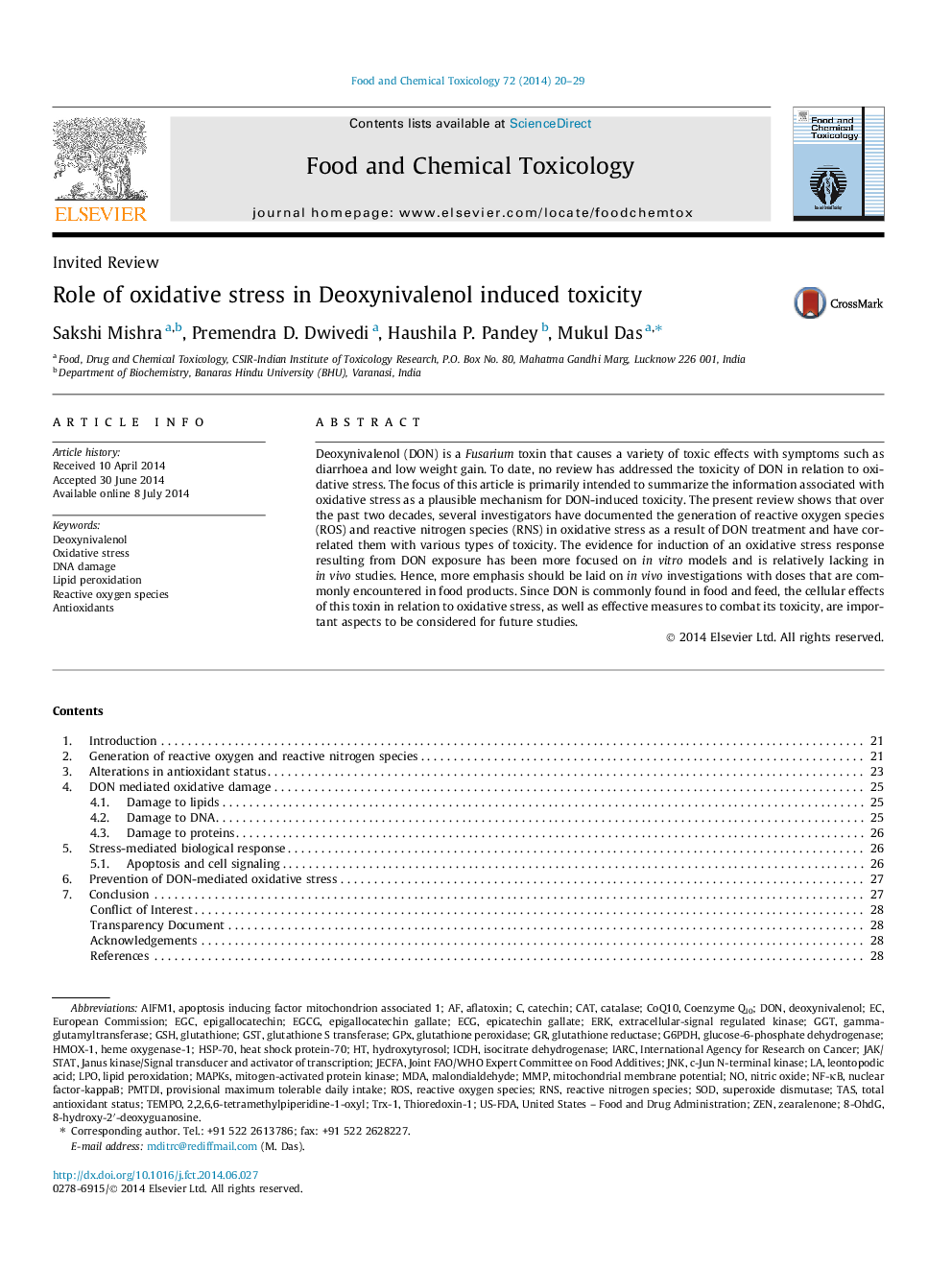| Article ID | Journal | Published Year | Pages | File Type |
|---|---|---|---|---|
| 2584981 | Food and Chemical Toxicology | 2014 | 10 Pages |
•This is the first comprehensive review focusing on DON induced oxidative stress.•Several studies indicate the role of oxidative stress in DON mediated toxicity.•ROS may play a critical role in the induction of DON induced toxicity.•ROS scavengers and antioxidants show protection against DON toxicity.•More focus should be laid on DON induced in vivo studies.
Deoxynivalenol (DON) is a Fusarium toxin that causes a variety of toxic effects with symptoms such as diarrhoea and low weight gain. To date, no review has addressed the toxicity of DON in relation to oxidative stress. The focus of this article is primarily intended to summarize the information associated with oxidative stress as a plausible mechanism for DON-induced toxicity. The present review shows that over the past two decades, several investigators have documented the generation of reactive oxygen species (ROS) and reactive nitrogen species (RNS) in oxidative stress as a result of DON treatment and have correlated them with various types of toxicity. The evidence for induction of an oxidative stress response resulting from DON exposure has been more focused on in vitro models and is relatively lacking in in vivo studies. Hence, more emphasis should be laid on in vivo investigations with doses that are commonly encountered in food products. Since DON is commonly found in food and feed, the cellular effects of this toxin in relation to oxidative stress, as well as effective measures to combat its toxicity, are important aspects to be considered for future studies.
Graphical abstractFigure optionsDownload full-size imageDownload as PowerPoint slide
